Trend of sustainable production and consumption
Plastic and plastic products are currently useful and convenient items in daily life. However, the production and consumption of plastic globally are not sustainable or reasonable, leading to global pollution.
Currently, developing a circular economy model focused on the responsible use of natural resources and effective management of plastic waste is a matter of concern for many businesses pursuing long-term sustainable development strategies.
In particular, sustainable production will promote the economical and efficient exploitation of resources, reducing waste released into the environment. On the other hand, consumer demand for sustainable and environmentally friendly products is increasing. Therefore, companies that adopt green practices can gain a competitive advantage. This also helps raise public and social awareness about sustainable plastic use and consumption, contributing to environmental and community protection.
Innovations elevating sustainable experience
As a reputable plastic brand with 37 years of operations in Vietnam, Duy Tan prioritizes sustainable production and the development of green products in its strategy to promote a circular economy. The company's teams continuously research and innovate advanced mold processing and optimal solutions to meet the highest standards of customers, especially ESG solutions. Through “production and use of environmentally friendly packaging,” Duy Tan is collaborating with many global partners and corporations to ensure internationally standard, eco-friendly, and health-safe packaging.
Recently, Duy Tan successfully produced PCR (post-consumer recycled plastic or recycled plastic) bottles. This type of plastic is recycled from products made of virgin HDPE with a strictly controlled mechanical recycling process. In early 2023, Vilube became one of the strategic partners, pioneering the use of bottles with 50 per cent recycled plastic in Motul's oil containers. This year, Duy Tan's PCR bottle production reached over 290 tons and is expected to increase in 2025. The successful implementation of PCR is a significant effort by the manufacturer and customer partners to create sustainable packaging, saving resources and production costs, and reducing plastic waste in the environment.
From here, the company continuously improves technology and machinery, and seeks initiatives to make PCR plastic bottles widely applicable and the preferred choice for all partners, not just Motul.
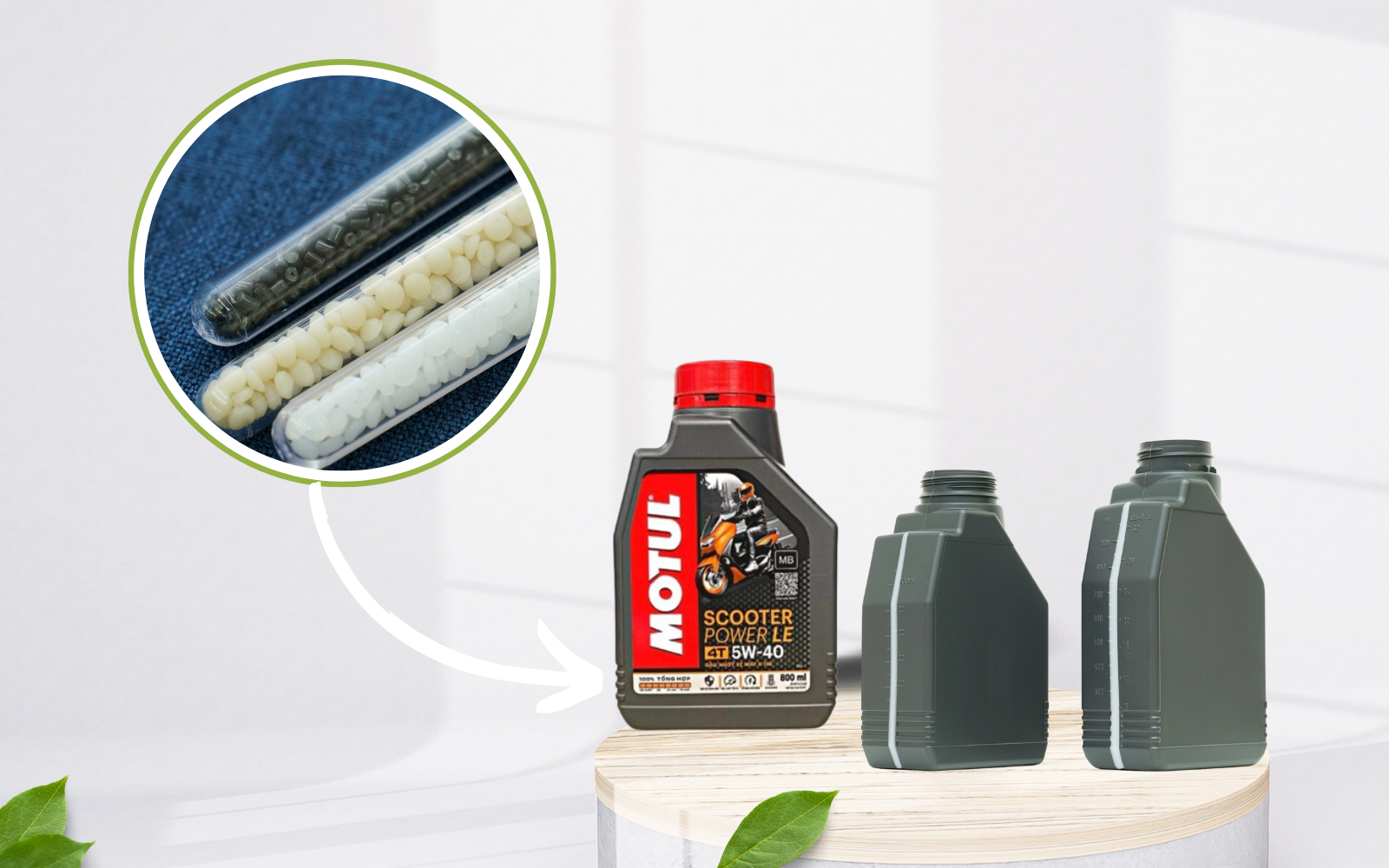
Another notable innovation by Duy Tan in 2021 is the bottle cap for soy sauce and oyster sauce under the Maggi brand by Nestlé Vietnam. With the task of reducing plastic in bottle caps while ensuring quality and convenience for consumers, Duy Tan implemented the project and mass-produced the products for the market.
Accordingly, the product weight was reduced from 5.3g to 2.8g per new cap, equating to a reduction of 2.5g per cap. The improved locking system significantly contributed to a weight reduction of up to 42 per cent for soy sauce caps and 47 per cent for oyster sauce caps. Unlike conventional caps, the new design also allows customers to easily open and close, ensuring leak-proof performance thanks to a new mechanical lock replacing the traditional Guarantee ring. This product demonstrates resilience in real-world usage, enduring temperatures of 60°C for one week without any structural compromise. It is manufactured with the highest standards set by BRCs for Packaging and Packaging Materials.
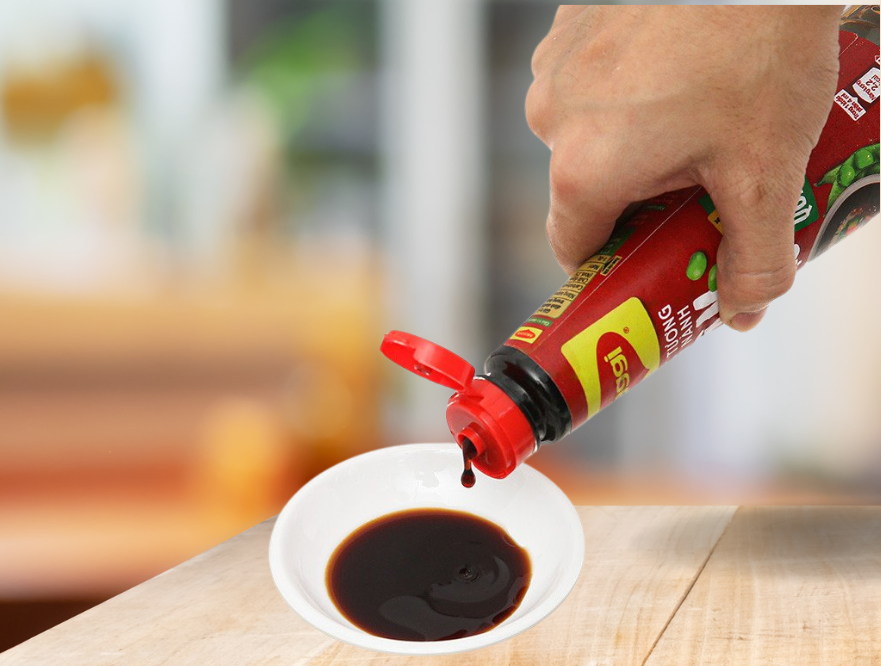
A representative from Nestlé Vietnam stated that the motivation for improving the cap design was to enhance user convenience. With the innovative cap lock design, users only need to open the bottle with their thumb instead of using both hands to tear off the Guarantee ring on the cap. This makes daily cooking activities more convenient. Therefore, since its market launch, the product has been chosen by millions of households in Vietnam.
This innovation also contributes positively to waste reduction and environmental protection. Compared to the previous design, the new mechanical lock design is 24 per cent to 48 per cent lighter, reducing CO2 emissions by 3.95g CO2 per piece and significantly lowering total CO2 emissions throughout the entire value chain. Additionally, the improvements help businesses reduce the use of raw materials, energy consumption in production, emissions, and waste treatment at the end of the product lifecycle, thereby optimizing and conserving resources in the supply chain.
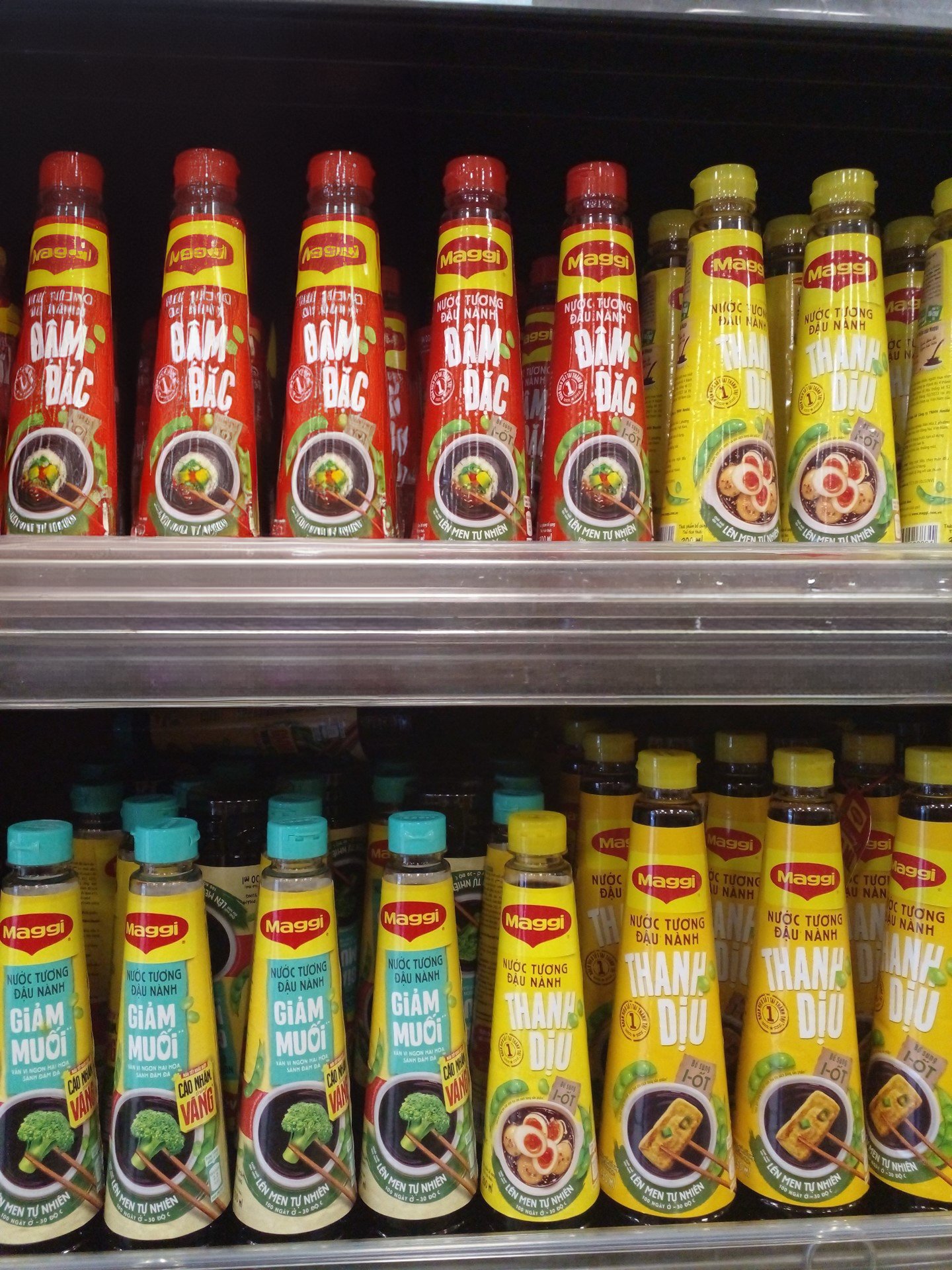
Previously, the "reducing plastic in the 300ml PET bottle packaging process" project between Nestlé and Duy Tan also contributed to reducing 36,000 plastic bags, equivalent to about 1 ton of plastic. These two projects demonstrate the collaboration in implementing ideas that align with new trends while helping consumers be aware of reducing plastic waste right from the kitchen.
"With many years of experience in packaging design and manufacturing expertise, Duy Tan has met the requirements for lightweight, optimized, and efficient product usage. With a clear conversion process and smooth operation, the product has been thoroughly and rigorously tested to ensure unchanged quality. Therefore, the improvements bring technological advancements, sustainability, and enhanced user experience, affirmed a representative from Duy Tan.
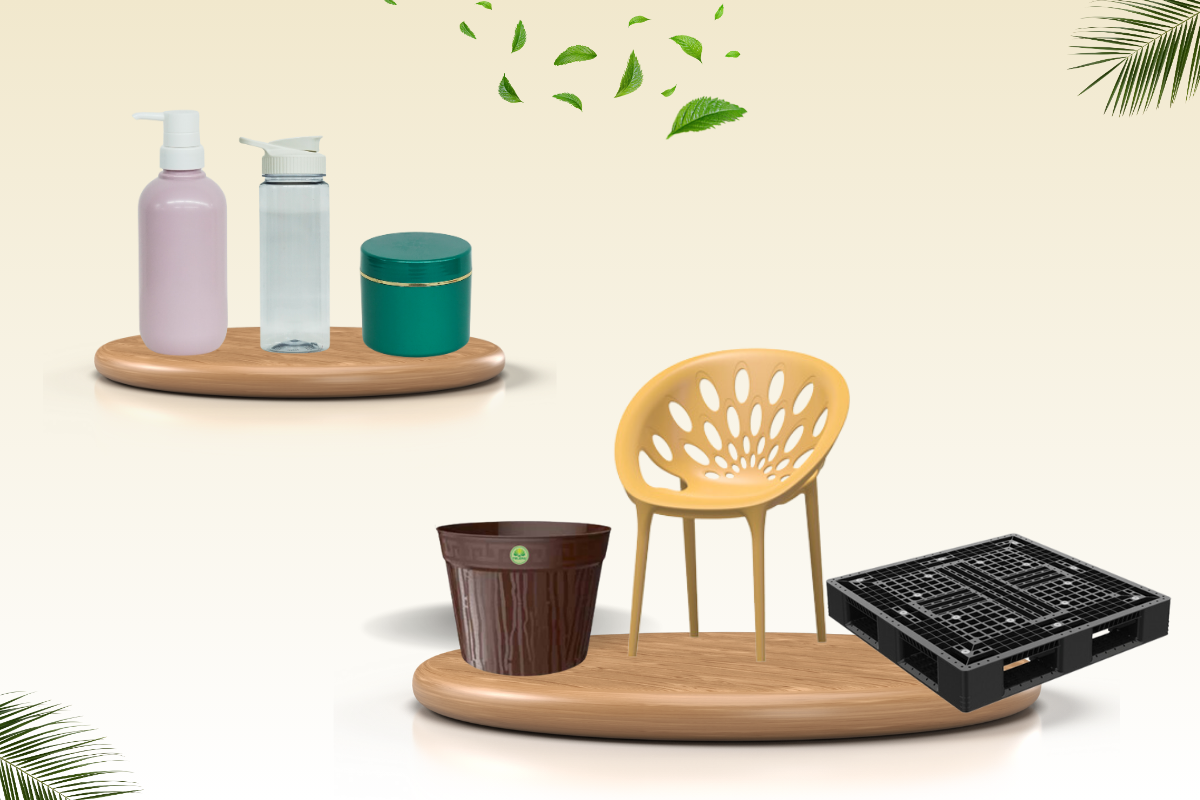
In addition to the aforementioned partners, Duy Tan also produces rPET and rPP plastic products such as water bottles, cosmetic containers, dishwashing liquid bottles, syringes, and more for corporations in various fields. In the near future, Duy Tan will continue to supply sustainable consumer products to the market, applying recycled materials in production, combined with the use of bio-based materials , etc. These projects not only bring creativity, eco-friendliness, and sustainability to the environment and enhance consumer experience but also strengthen Duy Tan's capabilities as a member of SCG Packaging (SCGP) - ASEAN's leading comprehensive packaging solution provider.


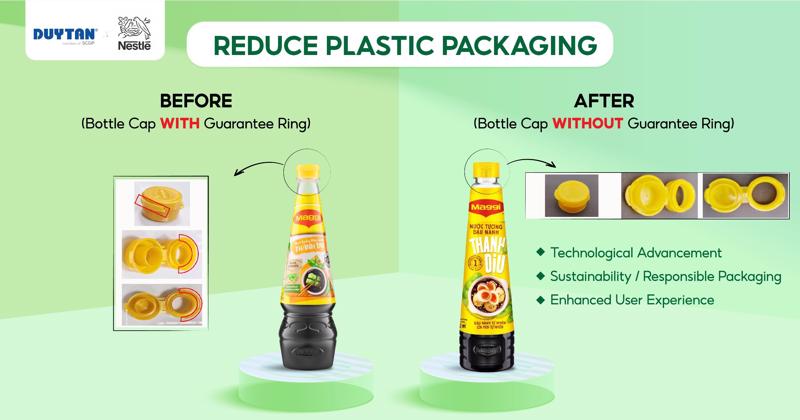






 Google translate
Google translate